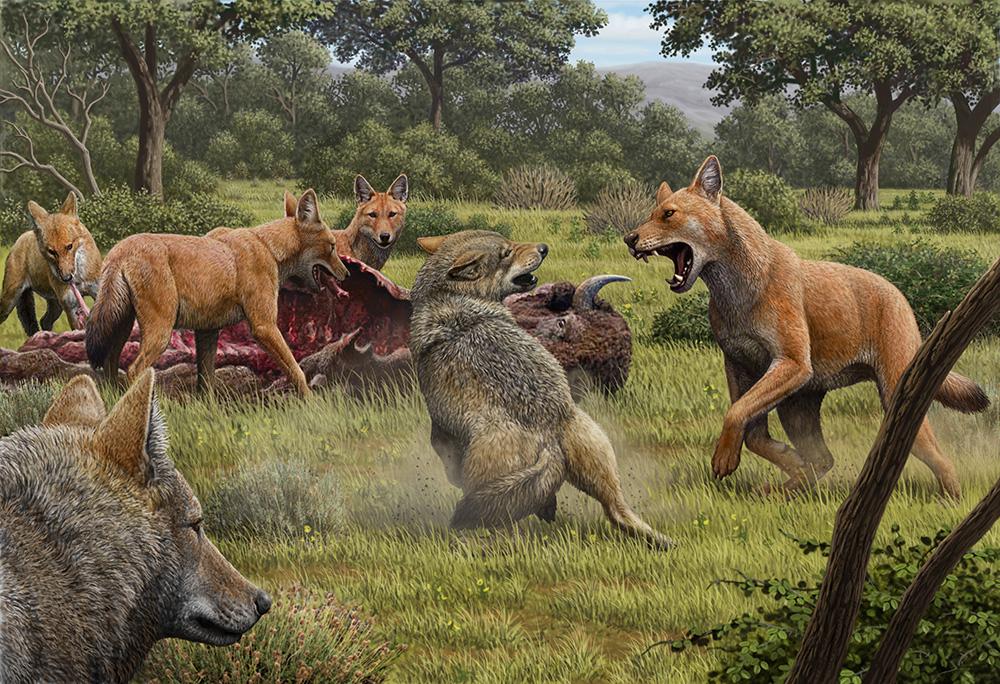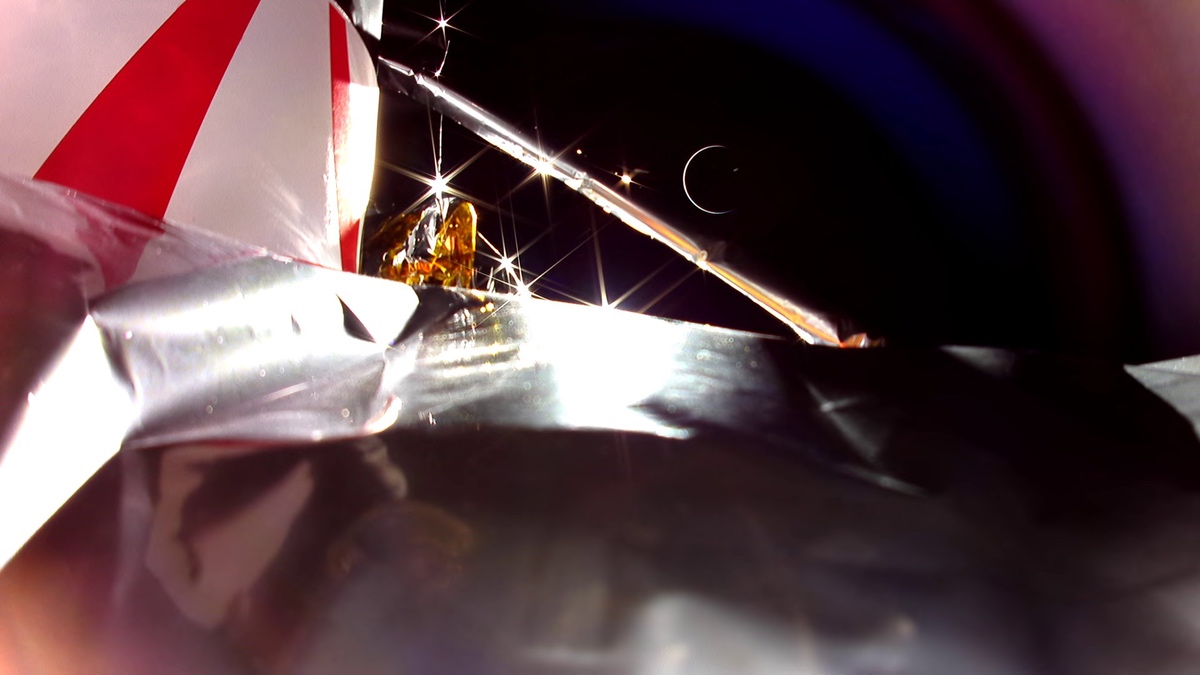„Game of thrones“ It may have intrigued viewers with stories of dragons, fictional heroes and heroines, but one aspect of the show was real, according to a new study: Terrible Wolves.
According to research published in the scientific journal natureDire wolves have been around from 125,000 years to 9,500 years ago. However, they may have become extinct because they have been unable to mate with gray wolves in the modern era.
„Terrible wolves are sometimes portrayed as mythical creatures – gigantic wolves roaming in icy, grim landscapes – but the reality turns out to be a lot more interesting,“ said study co-author Keren Mitchell from the University of Adelaide. statement. „ Despite anatomical similarities between gray wolves and terrible wolves – suggesting that they could possibly be related in the same way as modern humans and Neanderthals – our genetic results show that these two wolf species are very similar to distant cousins, like humans and chimpanzees.

Somewhere in southwestern North America during the late Pleistocene, a group of dire wolves (Canis dirus) feed on killing bison, while a pair of gray wolves (Canis lupus) approaches in hopes of getting rid of them. A terrible wolf rushes to confront the Gray Wolves, and their encounter allows for the comparison of the larger wolf with a larger head and a reddish brown to its smaller gray relative. (Mauricio Anton / Nature)
Researchers have sequenced the DNA of five fossils of terrible wolves from the United States, marking the first time that DNA from terrible wolves has been taken and studied.
“With this first ancient DNA analysis of terrible wolves, we revealed that the history of the terrible wolves that we thought we knew – and especially the close relationship with gray wolves – is actually more complex than we previously thought,” said study co-author Angela Berry added. „Instead of being closely related to other dog species in North America, such as gray wolves and coyotes, we found that dire wolves represent a branch that separated from others millions of years ago, and represents the last breed that is now extinct.“
“When we first started this study, we thought that dire wolves were just ferocious gray wolves, so we were surprised to find out how so genetically different they are, that they are likely not to reproduce,” study co-author Laurent Frantz explained. „Crossbreeding across canis species is thought to be very common, meaning that dire wolves have been isolated in North America for a very long time to become genetically distinct.“
Although gray wolves had interbreed with other species, such as dogs, coyotes and jackals, the terrible wolf was a „highly variable breed“ that split from canines around 5.7 million years ago, according to the study summary.
Mitchell added, „While ancient humans and Neanderthals appear to have interbreed, as is the case with gray wolves and modern coyotes, our genetic data did not provide any evidence that the terrible wolves interbreed with any kind of living dog.“ „All of our data indicates that the terrible wolf is the last surviving member of an ancient lineage that differs from all living canines.“
Study says Australia’s megafauna died from enthusiasm and climate change
Dire wolves are thought to have been common during the Pleistocene, with researchers adding that they had „an early New World ancestry,“ while gray wolves, coyotes and dolzes evolved in Eurasia and colonized North America relatively recently.

„Organizátor. Spisovateľ. Zlý kávičkár. Evanjelista všeobecného jedla. Celoživotný fanúšik piva. Podnikateľ.“







